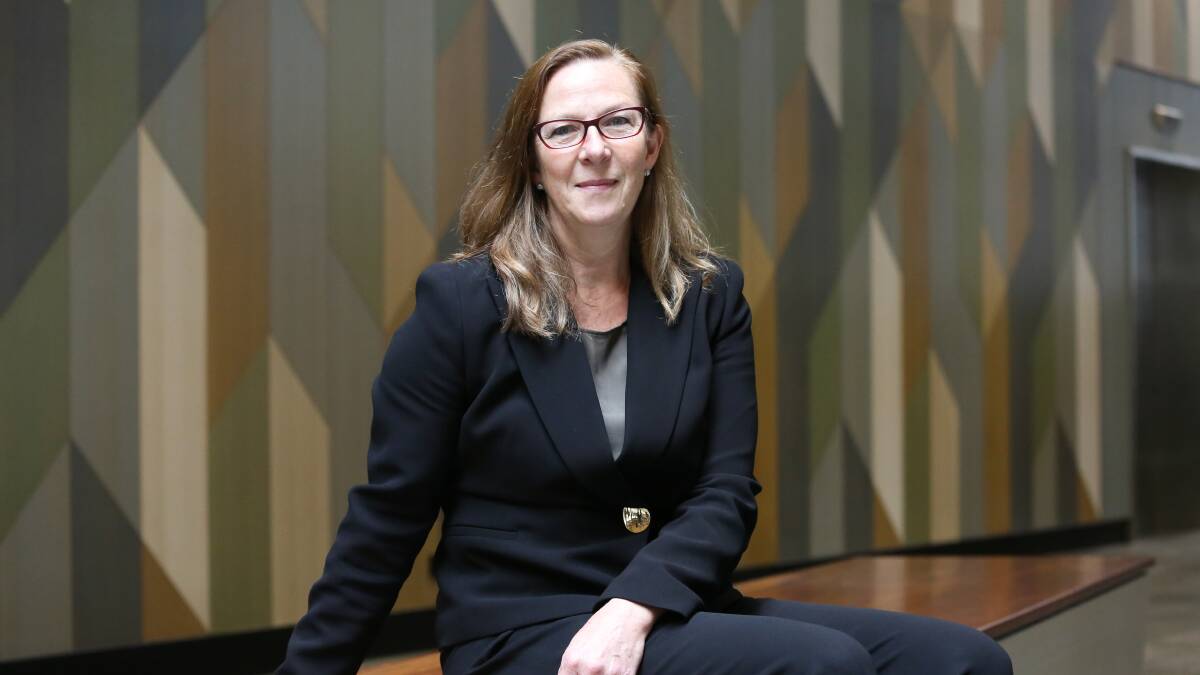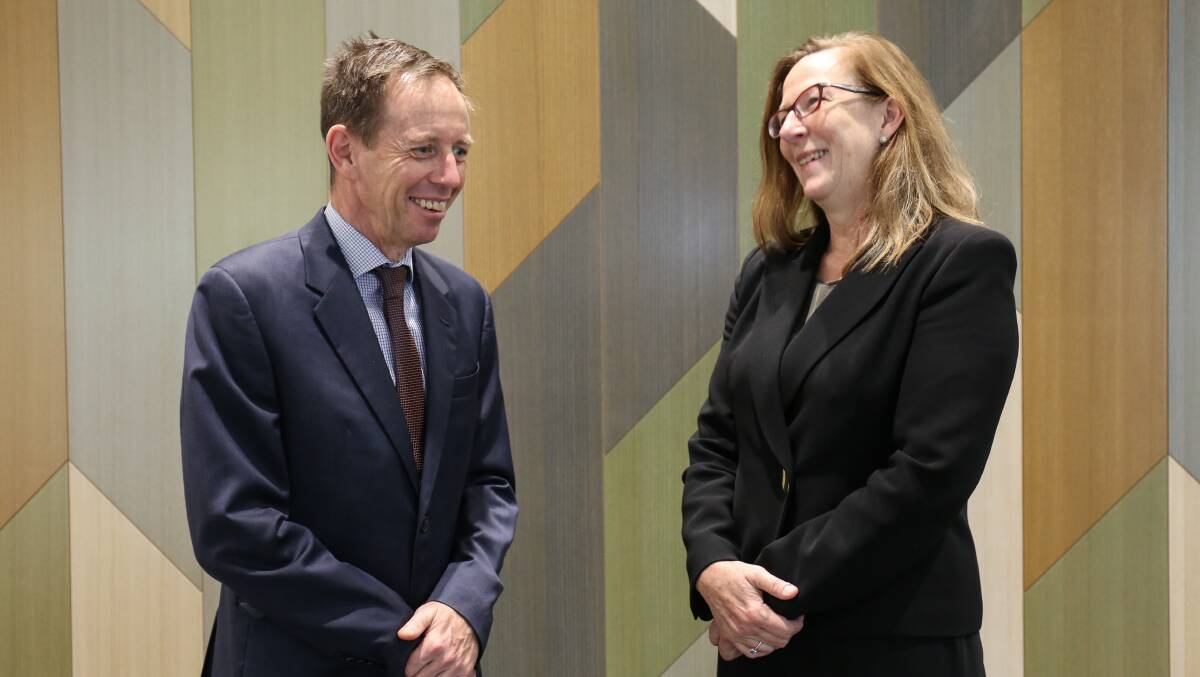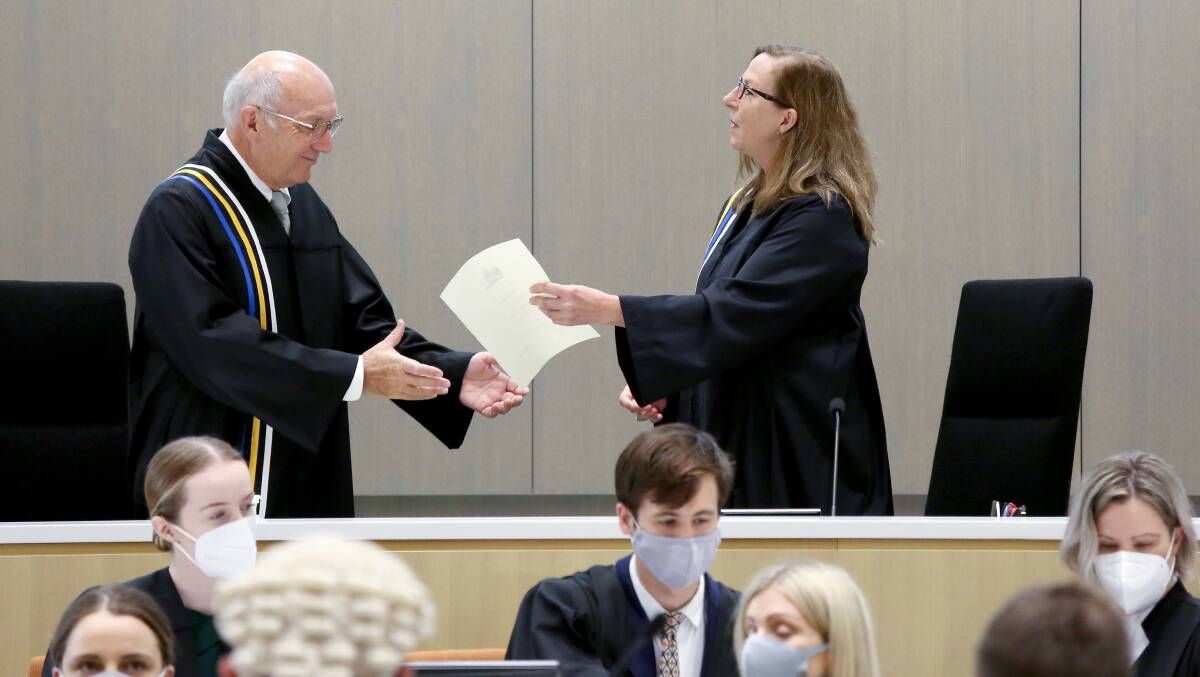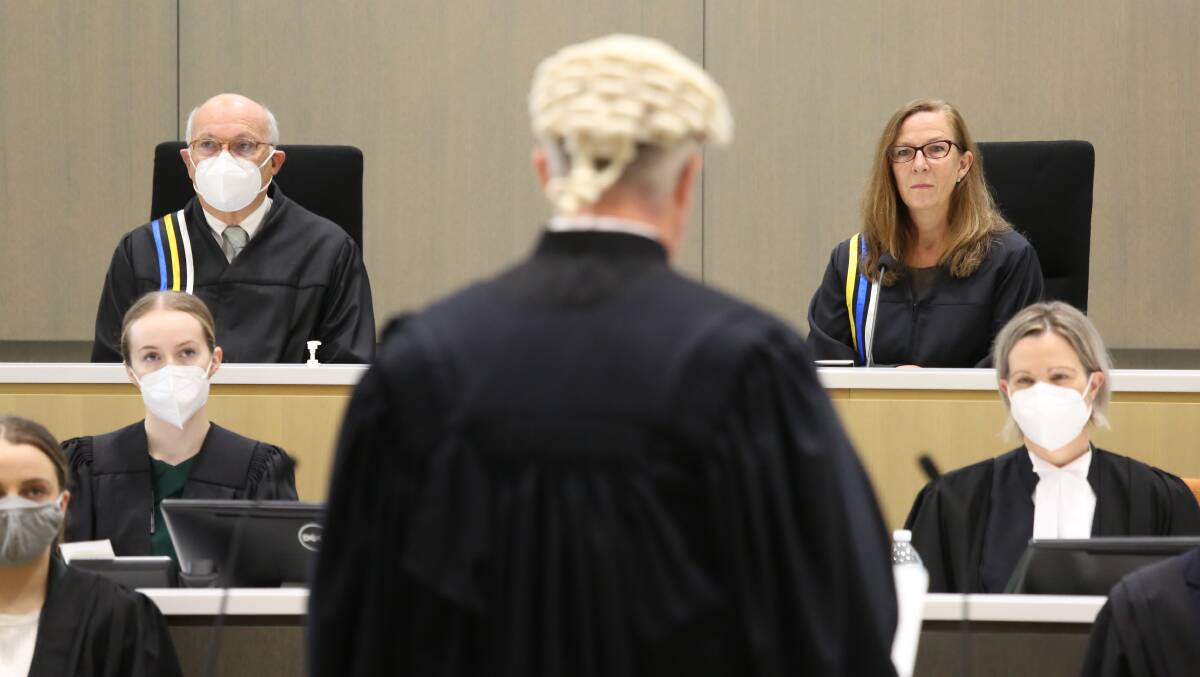
The ACT's new chief justice has set her sights on overcrowded prisons, saying crime should be treated as "a broader social issue" in a bid to stop so many people ending up behind bars.
Chief Justice Lucy McCallum said on Tuesday that it would strengthen the justice system to adopt such an approach and "take some of the fear out of our conceptions of criminals".
The former NSW Court of Appeal judge made that comment as she returned to Canberra, where she was once a prosecutor, to take over as the ACT's top judge.
She was fittingly sworn in as just the second female chief justice of the ACT on International Women's Day, with retired predecessor Helen Murrell watching on via video link after being "trapped at home by a swollen creek".
"I have big shoes to fill and, for once, find myself wishing I had bigger feet," she told an ACT Supreme Court ceremonial sitting.
Chief Justice McCallum, a self-described "open book", said when her appointment was announced in November that she regarded the overrepresentation of Indigenous people in custody as "a national tragedy".

She reiterated those remarks in her speech on Tuesday, and extended them to comment on the overcrowding of Australian prisons more broadly.
"[Overcrowding] reflects an approach to sentencing which prefers isolation of offenders in a custodial setting over early engagement with the endemic problem that contributes to the causes of their offending," the Chief Justice said.
"Addressing those issues is not something the court can, or should, seek to achieve alone.
"I'm not talking about introducing a culture of leniency in sentencing, or exposing the community to unwarranted risk by taking an unduly generous approach to bail applications.
"I'm not talking about setting at nought the hard work of police, who have perhaps the most difficult and thankless role in the criminal justice system.
"I am talking about the need for an exchange of ideas about the concept of moral culpability."
MORE COURT AND CRIME NEWS
- Man claims to be 'clueless' about vexatious triple zero call
- Stalker 'undeterred by death' accused of using flamethrower
- Middle-aged mum 'dragged into' dealing drugs: judge
- 'My heart is shattered': Mum's pain after death of 'shadow'
Chief Justice McCallum noted that a series of High Court decisions had acknowledged that offenders who had suffered "profound deprivation" as children may be less culpable for their crimes than others.
She said there was therefore a "moral responsibility" to identify and address the causes of profound deprivation.
After the ceremony, Chief Justice McCallum told reporters "everyone" should be part of that conversation.
She said the focus should be on "building communities, not prisons", and "addressing endemic problems rather than coming in as a repairer".
Chief Justice McCallum referred to criticism of the fact Australia spent 97 per cent of its disaster funding on clean-up work, with just 3 per cent dedicated to preparation.

"It's the same idea," she said.
"We need to spend more money investing in preventing crime, and dysfunctional family circumstances, so that we spend less money incarcerating people."
The ACT's adult prison, the Alexander Maconochie Centre, has routinely housed a population of prisoners that exceeds the facility's design capacity.
Chief Justice McCallum's commitment to social justice had earlier been highlighted by ACT Bar Association president Andrew Muller, whose speech to Tuesday's ceremonial sitting noted she had been described as "fair and unfailingly courteous".
ACT Law Society president Elizabeth Carroll said Chief Justice McCallum's appointment had been "met with universal acclaim" by the territory's legal profession.

Ms Carroll told the ceremonial sitting it was apparent to people who knew Chief Justice McCallum in the 1980s, when she was a Commonwealth prosecutor in Canberra, that she was "destined for greater things".
She went on to achieve those things in NSW, being appointed senior counsel and then a judge at "a remarkably young age".
In that state, Ms Carroll said, Chief Justice McCallum was spoken of as a great judge "but an even better human".
ACT Attorney-General Shane Rattenbury also spoke at Tuesday's ceremony, telling the court "the winds of change" were always blowing.
He said he was confident that, under Chief Justice McCallum's leadership, the Supreme Court would harness those winds rather than be buffeted by them.






